With Prisca Kaoma, CAMFED Teacher Mentor
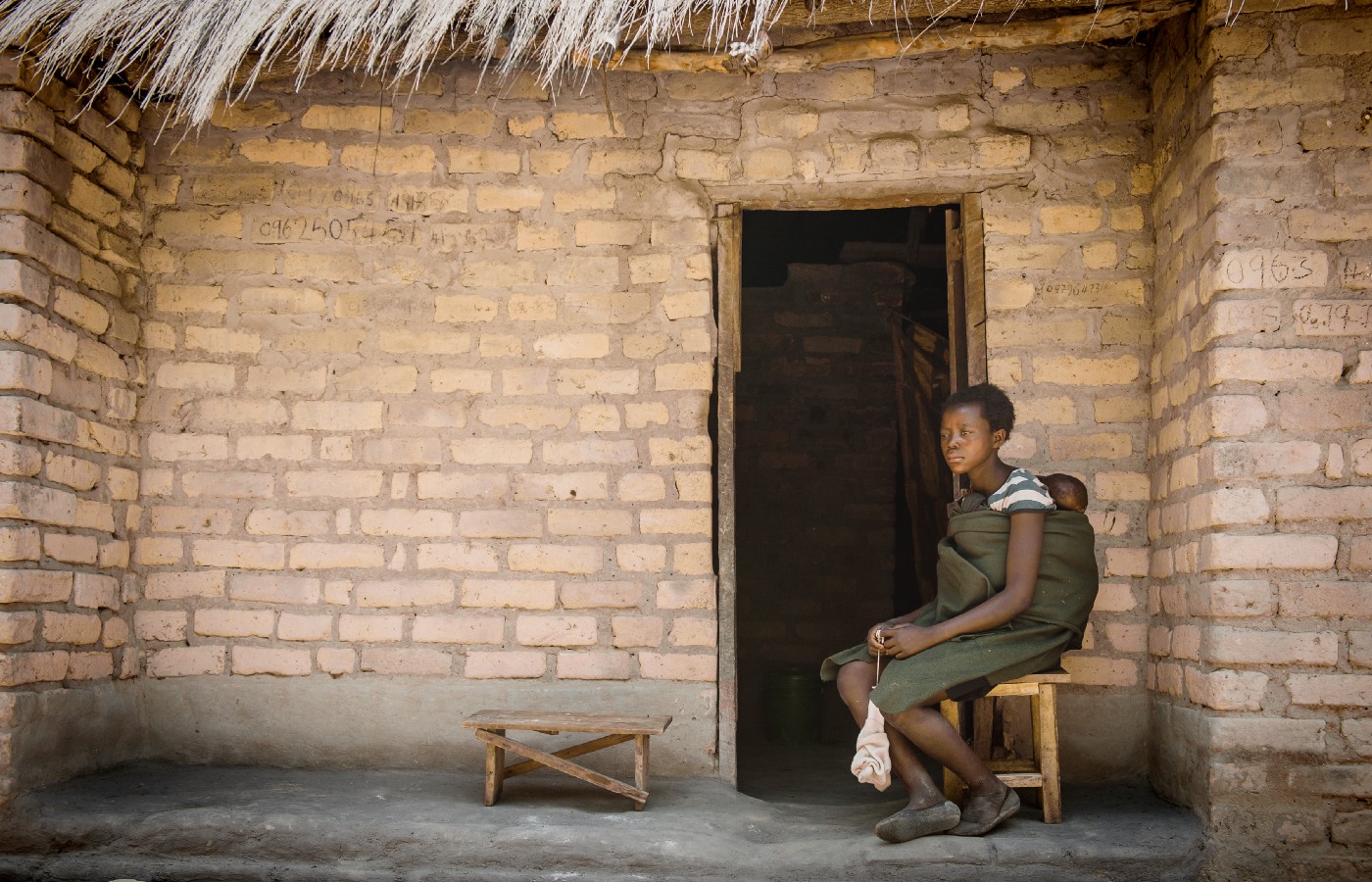
Five reasons why child marriage affects us all
Fiona Mavhinga, Executive Advisor for the CAMFED Association, tells how child marriage is standing in the way of progress towards many 2030 Global Goals. For…
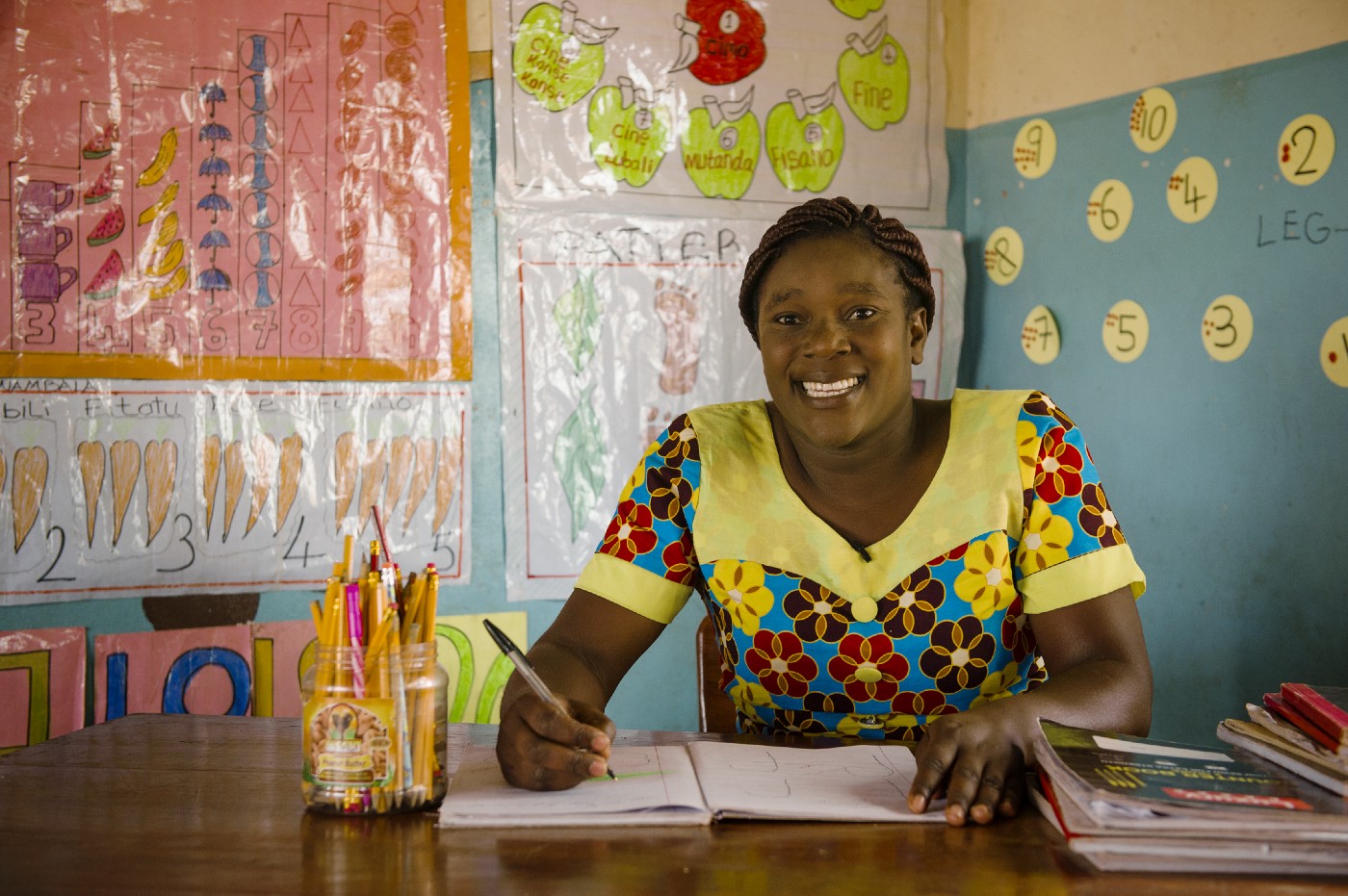
With Prisca Kaoma, CAMFED Teacher Mentor
Originally from Kasoma Province, Prisca was posted to Luapula Province after completing her teaching degree. In 2008, Prisca became a Camfed Teacher Mentor. Teacher Mentors are government teachers trained by Camfed in child protection, psycho-social support and pastoral care. The first port of call for vulnerable children, Teacher Mentors work in partnership with schools and communities to address the barriers to girls’ education.
We met Prisca at her school this September.
PK: I was chosen by the administration to become a Teacher Mentor, because of the passion which I have for helping learners.
PK: I wanted to improve their circumstances through education, so that we can reduce the poverty levels in their homes. And of course to help them to avoid early marriages, and early pregnancies.
PK: One of the major problems that a lot of girls face in this district is early marriage. Children in our locality are getting married as early as 15 years old. They get married because parents are unable provide their basic needs, and so they are married to someone who may be older than them, and can take up that responsibility, maybe to support other younger family members as well. Many of these children are orphans, because of this pandemic disease which is HIV/AIDS.
PK: The main problem is poverty. If we reduce the poverty level, particularly in this district, we can reduce the number of learners getting married at such a tender age.
PK: When I see a girl who is pregnant at an early age, I feel very bad. My heart bleeds. Because there are a lot of complications during childbirth. And of course, with a baby to look after, the poverty level in their families will just increase. They are not going to have the maturity required to look after their baby, because they are still young, mentally, physically. They are just so young.
PK: You know, if you educate girls, you educate the whole nation and you reduce the poverty level in the country. People will be able to know their rights if they are educated. As a school, there are a lot of programs and interventions that we are doing to help girls who have been forced to drop out due to marriage or pregnancies to return to school and complete their education. And of course, there are other stakeholders, like CAMA members [Camfed alumnae]. They are supporting the girls, encouraging them to go back to school, work hard and succeed, so that they can have a better future. That’s what we do.
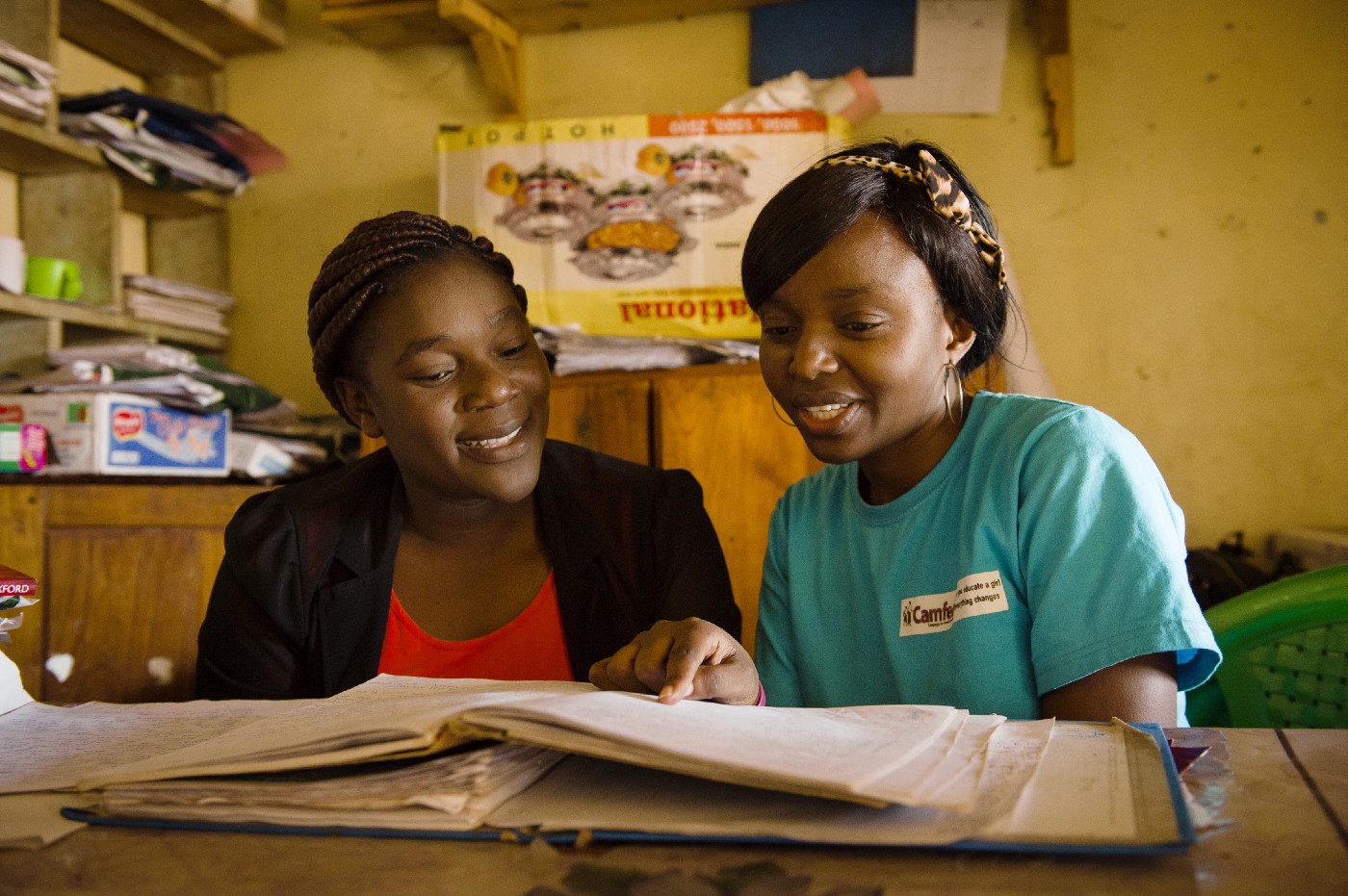
As a Teacher Mentor, Prisca works in partnership with CAMA members like Alice. (Photo: Camfed / Eliza Powell)
PK: Yes, we often meet with the parents, or the guardians of the children, so that we identify the challenges which they are facing, and how we can support them. Then we have the CAMA members, who are doing a tremendous job here. Each term, they visit various schools at least twice a term, to sensitize the learners about sexual reproductive health, covering topics like personal hygiene, abortion, early marriages, and child abuse. They are also sensitizing learners about entrepreneurship, financial management skills, and leadership skills. They are doing so to ensure that learners acquire the knowledge and skills they need to become responsible citizens, because they are the future leaders.
PK: The interventions have been so successful because of the number of different activities included, and the number of stakeholders that are involved. It is a very holistic program. So yes, the country will change and I’ve even seen the change. Firstly, the number of pregnancies has reduced in our district! Also, the poverty level for girls has reduced because they are using their entrepreneurship skills to sell products, for example, and young women are running income-generating businesses in our area.
If you believe in what we do, get involved today: https://camfed.org/unlockfutures/
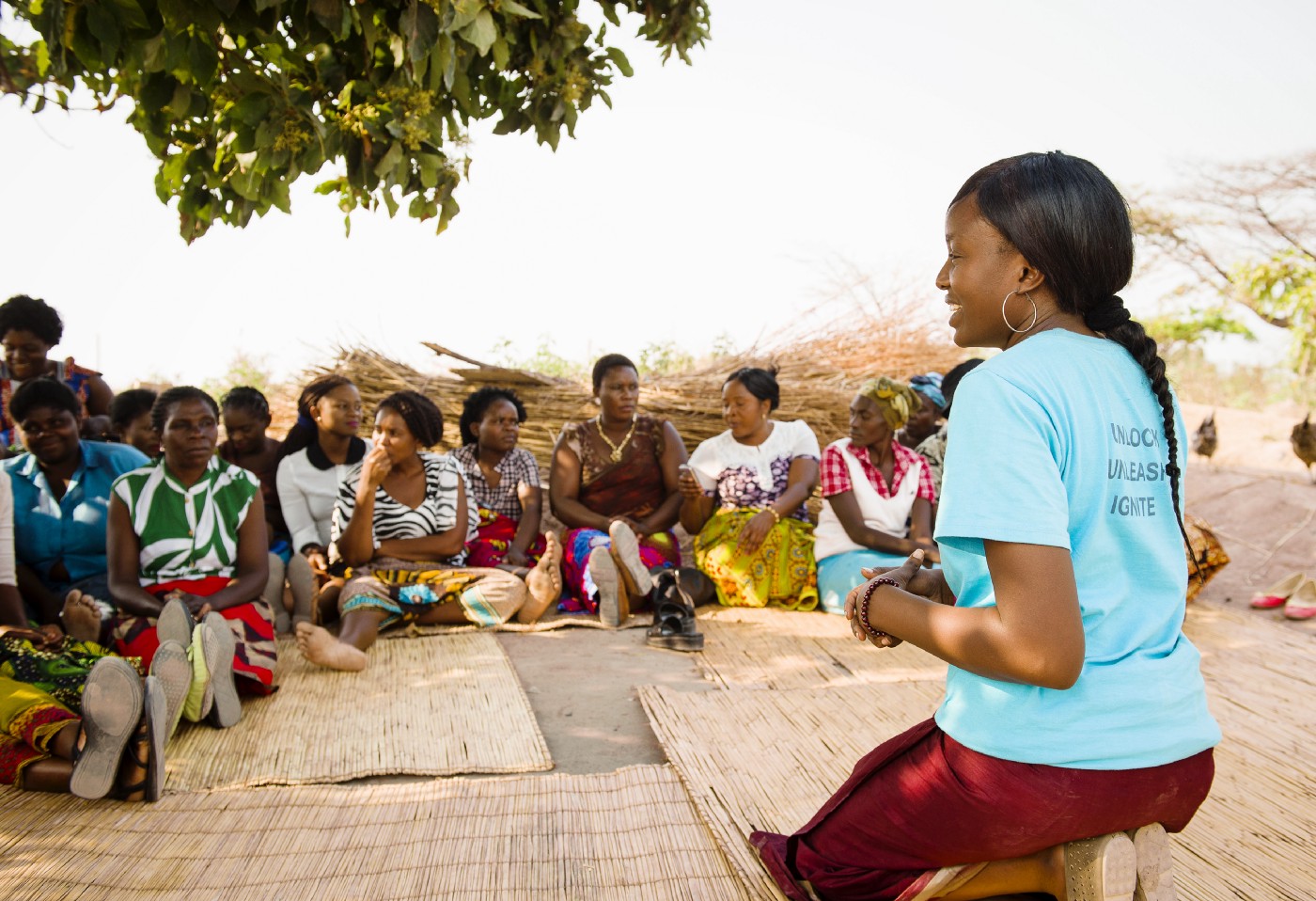
Find out more about how CAMA members like Alice are tackling child marriage in their communities:
https://camfed.org/latest-news/power-girlguardians-end-child-marriage/

Fiona Mavhinga, Executive Advisor for the CAMFED Association, tells how child marriage is standing in the way of progress towards many 2030 Global Goals. For…
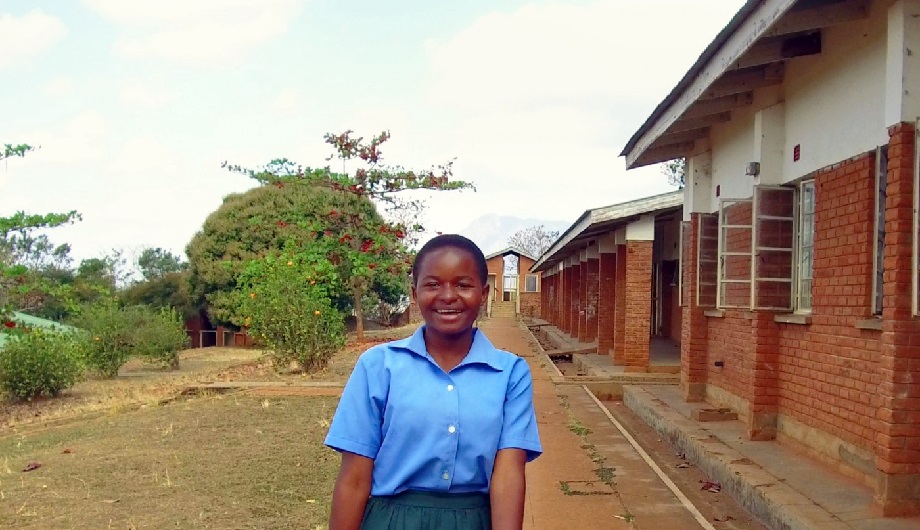
"If you want to develop this country, if you want to develop this world, we have to focus on education. Give girls their right of…
Pamela Edwards $13
Tanya Canier $5.6
Mahek Tulsiani $16.1
Henry Delorey $31.9
Alexis Hacker $25
Kathleen Benedict $13
Sarah Daniels $5
Zoe Landers $26.6
Doinita Necoara $5.6
Catherine Griffith $52.9
Karin Bjornson $21.5
Sandra Graves $5.6
Angela Cloutier $15
Jill Davis $20
John Lister $21.4